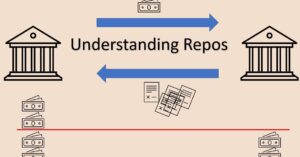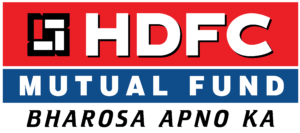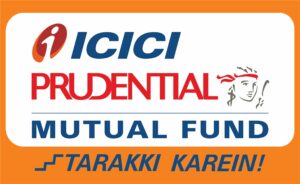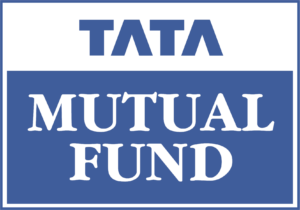Many debt funds help investors with low-risk tolerance to get good returns. Money Market Fund is the preference of many investors looking for short-term debt investments.
What is Money Market Fund?
Money Market funds or Money Market mutual funds invest in short-term debt instruments. The funds offer good returns over one year while maintaining high levels of liquidity. They mature within one year and are high-quality instruments with minimal risks.
They are safe investments providing a predictable risk-free rate return.
Money market funds are open-ended mutual funds that fulfil the short-term needs of the investors. They minimize the fluctuations in the Net Asset Value (NAV).
Types of Money Market Instruments
Treasury Bills (T-Bills)
RBI issues treasury bills on behalf of the state and central government to meet their short-term fund requirements. T-Bills have zero chances of default because they are government-backed securities. T-bills have a maturity of up to one year.
The government guarantees to repay the sum on the expiry of the stated period. There is no interest payment because they are issued at a discount and redeemed at par.
Example- If the FV of a 91-day T-Bill is ₹ 1000, the issue price is ₹ 800, and then after 91 days, the investor receives ₹ 1000. The difference of ₹ 200 is the income earned.
The sale of T-bills is through auctions by banks and financial institutions. The general public does not issue T-Bills.

Certificate of Deposits (CDs)
They are negotiable short-term instruments issued by banks and eligible financial institutions in a dematerialized form- Electronic form or Usance Promissory Note. The bank promises to pay the deposit amount with interest on maturity to the person holding the certificate.
Scheduled Commercial banks, excluding Regional Rural Banks (RRBs)and Local Area Banks (LABs), an all-India Financial institution permitted by RBI to raise short-term funds, can issue CDs.

Commercial Papers (CPs)
Commercial Papers are unsecured promissory notes placed privately at a discount rate to face value determined by the market forces. It is transferable from one party to another. There are criteria that companies need to fulfil to raise funds through CPs:
- As per the latest audited balance sheet, the company should have a tangible net worth of more than four crores.
- The company should also have a working capital of more than four crores.
- The loans should be classified as Standard Assets in the books of banks of financial institutions.
- The minimum maturity of CPs is seven days.
- P-2 or equivalent credit rating from agencies is mandatory.
- The minimum issue price of CPS is ₹ 50 lakhs, in the multiple of five lakhs

Repurchase Agreement (REPO)
REPO is a contract between RBI and banks or financial institutions. Banks purchase the securities issued by the government. If one bank requires funds, they can agree with RBI or financial institution and sell the security.
The sale of security will take place with an agreement that they will be repurchased on a future date at a predetermined price. There is no interest payment.
Example- Bank X has government security worth ₹ 100. X sells it at ₹ 100 to Bank Y and agrees to repurchase the same security after one month at ₹ 120. The repurchase price is always more than the original price.
The ₹ 20 earned by Bank Y is the cost of borrowing for Bank X.

Top Money Market Funds in India
The following funds can deliver consistent returns than other funds. They can control losses in a falling market. The credit profile of the funds is very high.
Kotak Mahindra Money Market Fund
Kotak Mahindra Mutual Fund issued this scheme in 2013. It has ₹11,454 crores Assets under Management (AUM). It falls under the medium-sized category of funds. The expense ratio is 0.26%, close to what the market charges. The average return since launch is 7.44% annually. Last year it delivered 3.77% returns.
The top holdings are Reserve Bank of India, Axis Bank Ltd, GOI, LIC Housing Finance Ltd, Export-Import Bank of India.

Nippon India Money Mutual Fund
Nippon India Mutual Fund launched the scheme in 2013. The expense ratio is 0.17%.
It has ₹ 8408 crores Assets under Management (AUM). It has delivered 3.88% returns over the past year and 7.51% annually since the launch.
The top debt holdings are GOI, Reserve bank of India, ICICI Securities Ltd, Reliance Industries Ltd.

HDFC Money Mutual Fund
It is a money market mutual fund from HDFC Mutual fund. The expense ratio is 0.2%.
The fund has ₹ 15828 crores AUM. It has provided 3.9% returns in the past year and 7.54% annually since 2013.
The top holdings are Reserve Bank of India, Reliance Jio Infocomm Ltd, Sun Pharmaceuticals Ltd, GOI, Reliance Industries Ltd.

ICICI Prudential Money Market Fund
A scheme launched in 2013 by ICICI Prudential Mutual Fund. It has ₹ 13305 crores Asset under Management.
The expense ratio is 0.21%. It has given 3.8% returns in 2020 and 7.49% annually since its launch.
The top holdings are GOI, Can Fin Homes Ltd, Reserve Bank of India, Panatone Finvest Ltd, Tata Teleservices.

Tata Money Market Fund
Tata Mutual Fund launched the scheme in 2013. The Asset under Management (AUM) is ₹ 7126 crores. It falls under the medium-sized fund category. The expense ratio is similar to what other funds provide- 0.25%.
The fund has delivered% returns in the past year and % since 2013.
The top holdings are Axis Bank Ltd, GOI, Tata Steel Ltd, HDFC Bank Ltd, LIC Housing Finance Ltd.

Key Highlights
- Money Mutual Funds are ideal for investors with low risk tolerance as the investment is for a shorter period. Hence, the interest rate changes in the economy are less likely to affect the returns.
- One can even approach overnight funds and liquid funds for very short-term fund needs.
- Credit risk, interest rate risk, and all other risks associated with debt funds is applicable here.
- Always check the fund manager’s strategy, rating of the fund, and invest in good track record debt mutual funds.
- The expense ratio is the fee mutual fund manager charge to handle your money. Choose a fund with a lower expense ratio.
- The taxation is like debt fund schemes. Returns are added to your income if the sale of units is before three years.
- If the investment is for more than three years, one gets indexation benefits since returns would be taxed as long-term capital returns. Indexation will help to reduce the purchase cost, bringing down the taxes.
Conclusion
To sum up, money mutual funds provide the highest returns in the short term. The fund managers maintain a diversified portfolio. Investors with a low-risk appetite can choose to invest in money market funds instead of the traditional modes like fixed deposits. These funds can provide more returns than saving accounts.
For medium to long term investments, one can go for balanced or dynamic funds for relatively higher returns.




